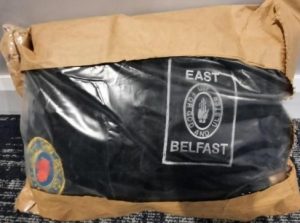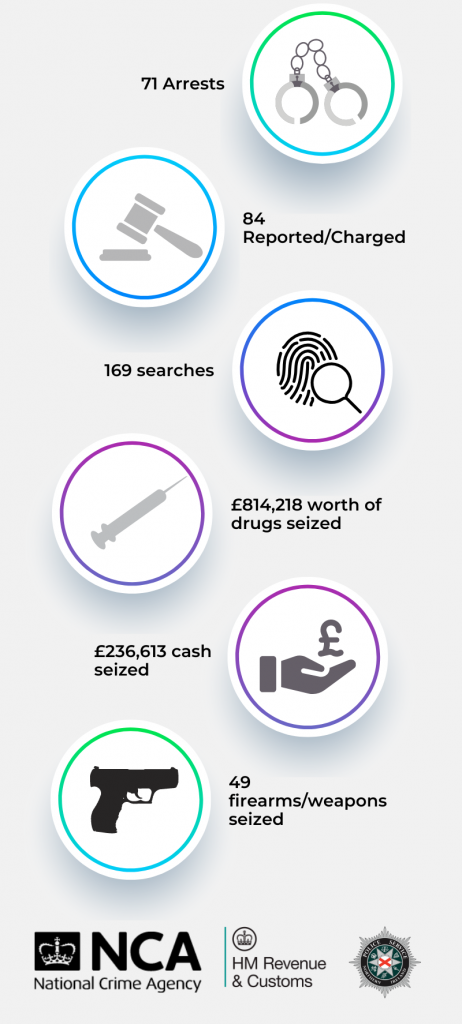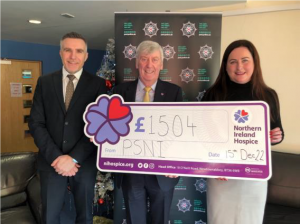In November 2022, the Paramilitary Crime Task Force, supported by local police and criminal justice partners, carried out a significant operation into suspected paramilitary activity linked to the East Belfast UVF over a two-day period.


Eight firearms, a large quantity of assorted ammunition, three viable pipe bombs, balaclavas and UVF flags and emblems were seized along with two vehicles. Four men were arrested and have since been charged with a number of offences including possession of a firearm and ammunition with intent to endanger life, possession of a firearm and ammunition in suspicious circumstances and possession of articles for use in terrorism. All four were also reported to the Public Prosecution Service for the offence of membership of a proscribed organisation.
Detective Inspector Maguire from PCTF said: “This was a significant operation which has resulted in a number of firearms being taken out of the community. Paramilitary gangs coerce and control communities, often through violent means. We are determined to work with communities to help keep them safe and end this harm.”
Paramilitary Crime Task Force 2022 Totals





